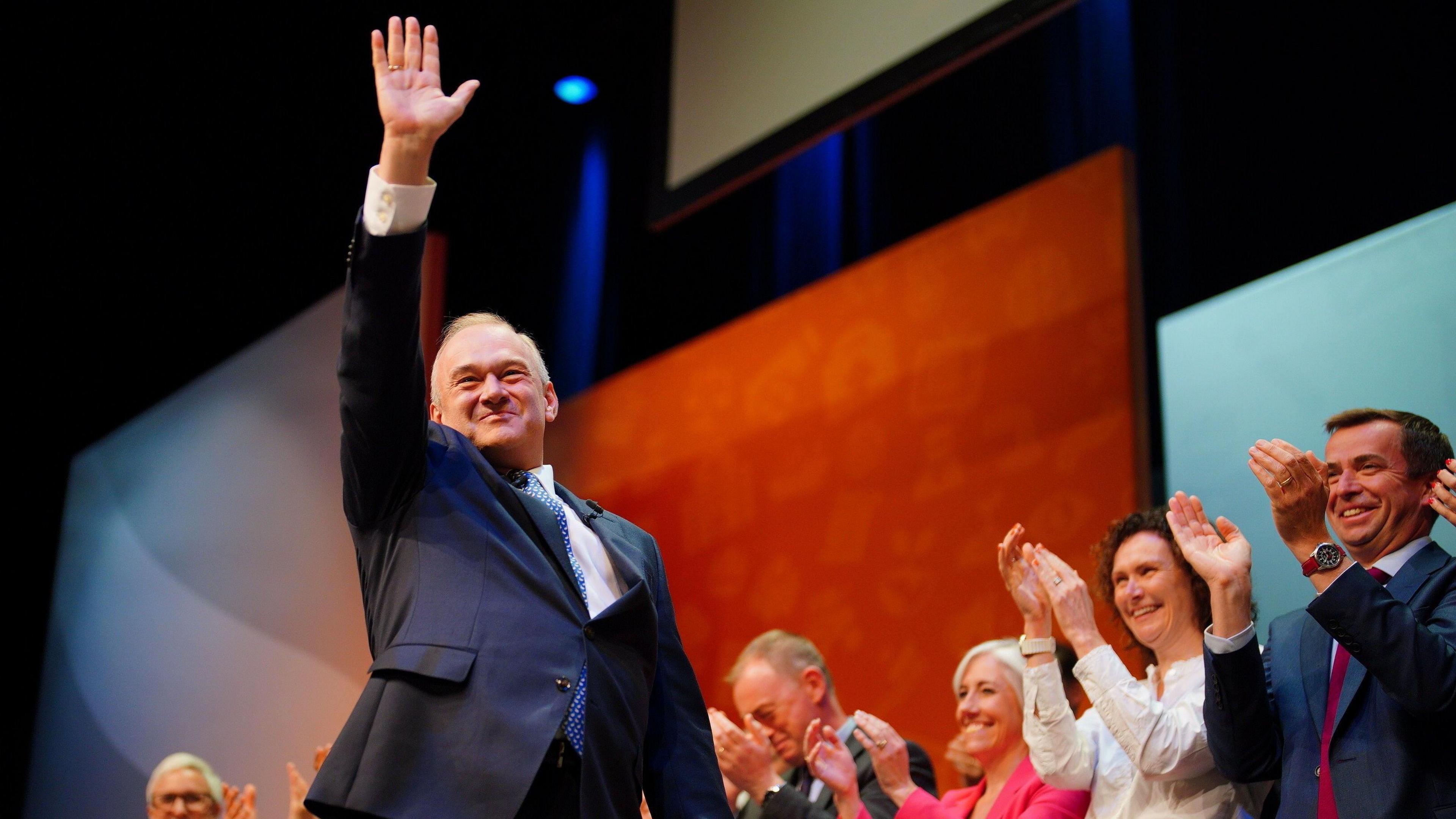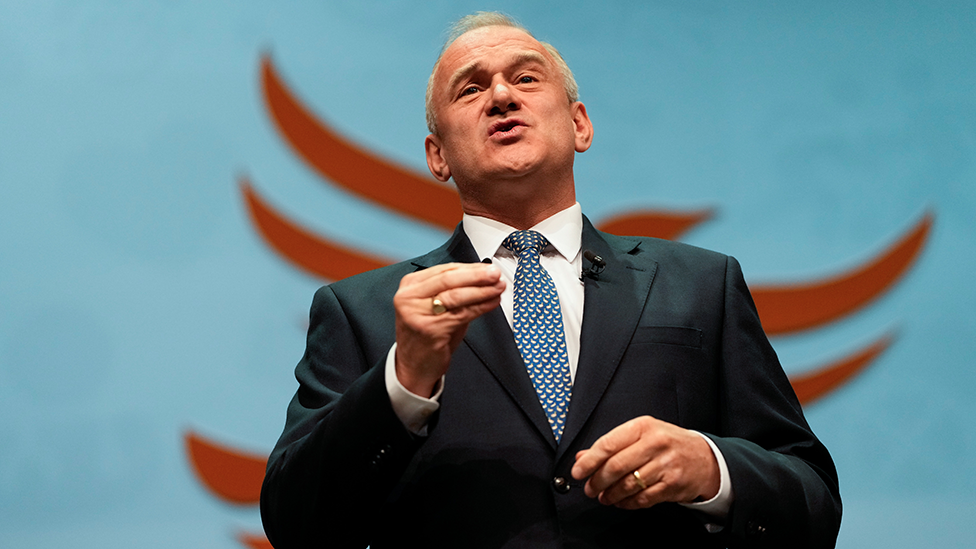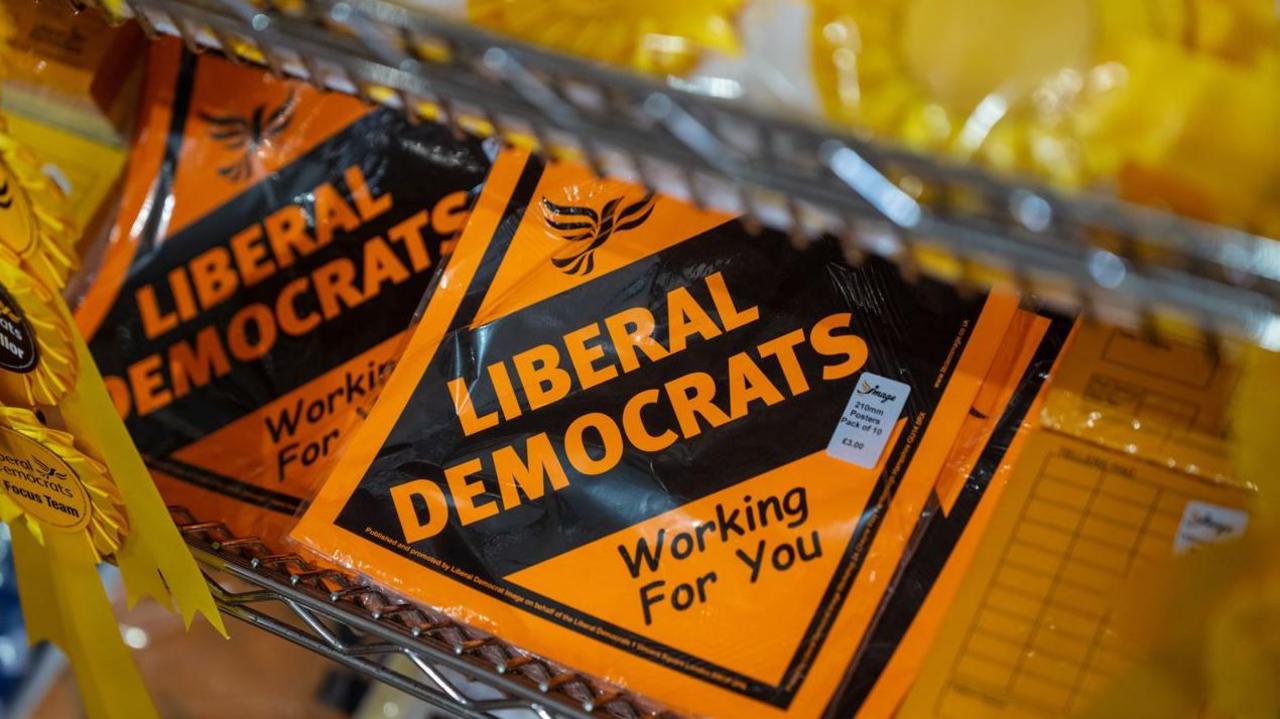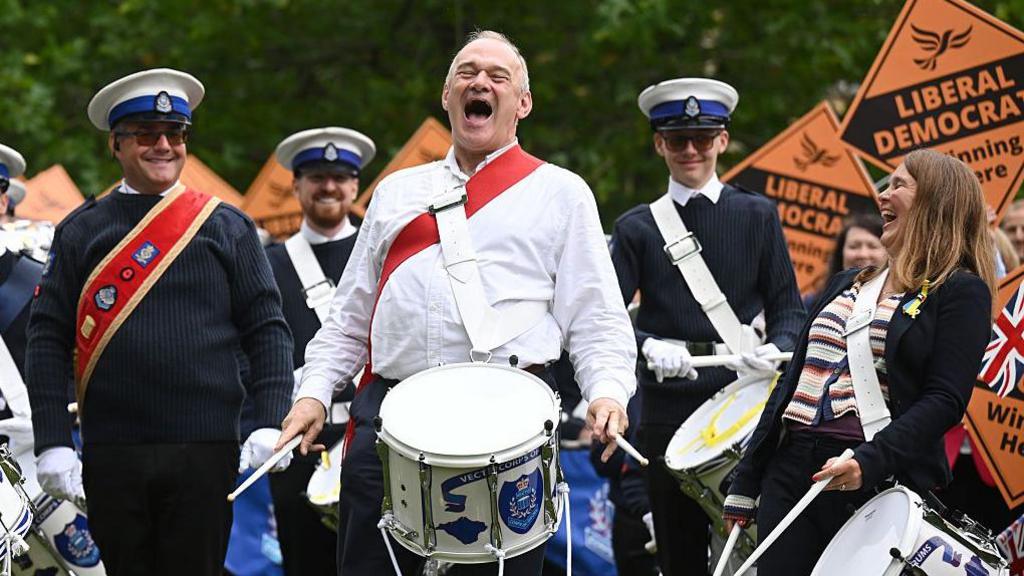Chris Mason: Punchy Lib Dems use Reform UK as call to action

- Published
Sir Ed Davey's speech to close the Liberal Democrat conference was punchy.
Here was a leader knowingly painting in primary colours and determined to be heard in our noisy politics.
This was a gathering of a party willing to double down on being more aggressive in making its arguments - in particular, its focus on the Reform leader Nigel Farage.
By my count there were at least 30 references to Farage – far, far more than to the prime minister or the Conservatives.
Senior Liberal Democrats spot an opportunity right now: a willingness to take on Reform and Donald Trump in a way Labour and the Tories either can't or won't.
And the party is using the Reform leader as a funding and recruiting sergeant.
They hope the prospect of a Farage premiership will motivate their activists, in efforts and donations, in a way a prospective Labour or Conservative victory might not do.
But the Lib Dems realise too that Reform's rise has a cost when it comes to a squeeze on the attention paid to Sir Ed Davey and his team, hence their noisy protests and allegations - repeated again by Sir Ed in his speech - about the relative coverage and scrutiny different parties receive from the BBC and others.
The corporation, incidentally, said "these continuing attacks on BBC journalism are completely groundless – it is simply false to say that we give any political party any less scrutiny than any other".
The Lib Dems also didn't remove a reference to the prospect of the UK's gun laws changing under a Reform government, despite Reform making it clear before the speech was delivered, but after the script had been shared with reporters, that they had no intention of changing the law.
When I asked if it was irresponsible or scaremongering to suggest schools might have to "teach our children what to do in case of a mass shooting," they argued it is about holding Nigel Farage to account for remarks he made 11 years ago.
Reform accused him of "spouting total madness".
I'd say the mood of the Liberal Democrats felt chipper, but business-like.
This time last year, just after a stonkingly good general election result for them, their conference felt like a non-stop party.
Not so now. The political landscape has changed and changed quickly.
Ed Davey's pitch
The Lib Dems are far from the only ones seeking to adjust and adjust quickly.
Part of their strategy is to extend their appeal towards recent Conservative voters unattracted by both Reform and Kemi Badenoch's leadership of the Tories.
Sir Ed Davey's pitch was both direct - "my message to you is this: come and talk to us" - and also packaged in the language of a former Conservative prime minister.
The Lib Dem leader talked of "male voice choirs and Hogmanay, county shows and school fairs, fish and chips, village greens and cricket pavilions".
It reminded me of Sir John Major's words more than three decades ago:
"Fifty years from now Britain will still be the country of long shadows on county grounds, warm beer, invincible green suburbs, dog lovers and pools fillers and - as George Orwell said - 'old maids bicycling to Holy Communion through the morning mist' - and if we get our way, Shakespeare still read even in school."
Both men, today and in 1993, are attempting to portray a pride in what they see as an understated patriotism and respect for traditions, a small c conservatism.
The Liberal Democrats hope they can be seen to represent the clearest and most authentic big party antidote to Reform.
And they are buoyed by internal polling suggesting more people are at least open to voting Lib Dem than for any other party right now.
But their challenge is they face a new and noisy rival in Reform for the protest votes of those put off by both the Conservatives and Labour.
They have grounds to hope and to worry in this increasingly competitive, noisy and fluid politics – and a determination not to be squeezed out of the conversation.
Related topics
- Published23 September

- Published23 September

- Published23 September
